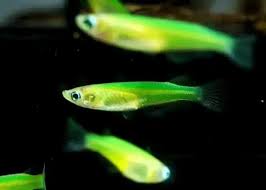Tea has been an essential part of Chinese culture for thousands of years, deeply intertwined with philosophy, poetry, and daily life. Among the many aspects of tea appreciation, Chinese proverbs and sayings about fresh tea (绿茶, lǜ chá) reflect profound wisdom, offering insights into life, patience, nature, and human relationships.
In this article, we will explore famous Chinese proverbs about fresh tea, their meanings, and how they continue to shape the way people enjoy tea today.
1. Tea and Life’s Philosophy
Many Chinese proverbs use tea as a metaphor for life’s journey, resilience, and balance. The process of brewing and drinking tea teaches patience, mindfulness, and appreciation for simplicity.
1.1. 一杯清茶, 以静养心 (Yī bēi qīng chá, yǐ jìng yǎng xīn)
“A cup of clear tea nurtures a peaceful heart.”
This proverb emphasizes the role of tea in cultivating inner peace and mindfulness. Fresh tea, especially green tea, is known for its pure, light taste, which symbolizes simplicity and tranquility. In traditional Chinese culture, drinking tea is more than just a habit—it is a way to meditate and calm the mind.
Lesson: In a world full of chaos, embrace simplicity and find peace in small moments, like enjoying a cup of fresh tea.
1.2. 茶如人生,苦尽甘来 (Chá rú rénshēng, kǔ jǐn gān lái)
“Tea is like life: after bitterness comes sweetness.”
This saying reflects the life philosophy of endurance and reward. When brewing fresh tea, the first taste can be slightly bitter, but as it steeps longer, the natural sweetness emerges. Similarly, in life, hardships are often followed by happiness and success.
Lesson: Face challenges with patience—just like tea, life’s struggles often lead to something sweet.
2. Tea and Friendship
Tea has long been associated with hospitality, trust, and deep friendships. Many Chinese proverbs highlight tea’s role in bringing people together.
2.1. 茶敬客来, 以和待人 (Chá jìng kè lái, yǐ hé dài rén)
“Offer tea to guests, treat people with harmony.”
In China, serving tea is a gesture of respect and kindness. Whether in formal tea ceremonies or casual gatherings, offering fresh tea symbolizes goodwill, hospitality, and a warm welcome.
Lesson: The act of making and sharing tea fosters understanding and connection between people.
2.2. 一盏香茗, 知己相逢 (Yī zhǎn xiāng míng, zhī jǐ xiāng féng)
“A cup of fragrant tea, a meeting of kindred spirits.”
This proverb expresses the idea that true friends can find deep connection over a simple cup of tea. Many poets, scholars, and philosophers in ancient China gathered for tea-drinking sessions, where they exchanged ideas, poetry, and wisdom.
Lesson: Friendships do not need luxury—shared experiences, like tea, are what truly matter.
3. Tea and Time: The Art of Patience
Brewing fresh tea requires precision, care, and patience. Chinese proverbs often compare the process of tea-making to the importance of waiting for good things in life.
3.1. 茶不急饮, 人不急躁 (Chá bù jí yǐn, rén bù jí zào)
“Tea should not be rushed, nor should people be impatient.”
Fresh tea needs time to release its aroma and flavor, just as people need time to grow and mature. If tea is consumed too quickly, it loses its essence—just like when people act without careful thought.
Lesson: Patience leads to better results—whether in tea brewing or in life’s decisions.
3.2. 好茶慢品, 人生慢活 (Hǎo chá màn pǐn, rénshēng màn huó)
“Good tea is savored slowly, and so is life.”
This proverb encourages people to slow down and appreciate life’s small joys. In China, tea-drinking is a ceremonial and mindful activity, meant to be enjoyed rather than rushed.
Lesson: Savor the present moment, just like a cup of well-brewed fresh tea.
4. Tea and Wisdom: Learning from Nature
Fresh tea represents nature’s purity and wisdom, teaching valuable lessons about balance, adaptability, and appreciation for the present.
4.1. 茶道即人道 (Chá dào jí rén dào)
“The way of tea is the way of life.”
This saying captures the spiritual depth of tea culture. The philosophy of tea (茶道, chá dào) teaches harmony, balance, and humility, which are also the core values of life.
Lesson: Learning to brew and drink tea teaches deeper lessons about human nature and the universe.
4.2. 以茶修身, 以茶悟道 (Yǐ chá xiū shēn, yǐ chá wù dào)
“Cultivate oneself with tea, understand the Dao through tea.”
Tea-drinking is not just about physical nourishment—it is also about mental and spiritual growth. Many Taoist monks drink tea during meditation, using it to enhance awareness and enlightenment.
Lesson: Tea is a path to wisdom, reminding us to stay humble, balanced, and mindful.
5. Tea and Health: The Healing Power of Fresh Tea
Traditional Chinese Medicine (TCM) has long praised fresh tea for its healing properties, and many proverbs emphasize tea’s ability to promote well-being.
5.1. 一日无茶, 百事乏味 (Yī rì wú chá, bǎi shì fá wèi)
“A day without tea, a hundred things lose their flavor.”
For tea lovers, tea is not just a drink—it is a source of energy and inspiration. Without tea, daily life feels dull and incomplete.
Lesson: A simple cup of fresh tea can refresh the body and mind, adding joy to daily life.
5.2. 茶可清心, 茶可养生 (Chá kě qīng xīn, chá kě yǎng shēng)
“Tea can cleanse the heart, tea can nourish life.”
This proverb highlights the physical and mental benefits of tea. Fresh tea is rich in antioxidants, vitamins, and calming properties, making it a perfect drink for both health and relaxation.
Lesson: Fresh tea is not just refreshing—it is a natural remedy for both body and soul.
Conclusion: The Timeless Wisdom of Tea Proverbs
Chinese proverbs about fresh tea reflect centuries of wisdom, culture, and tradition. Whether it is about life, patience, friendship, or health, each saying carries a deeper meaning that goes beyond tea itself.
By embracing these proverbs and incorporating them into daily life, we can cultivate mindfulness, harmony, and appreciation for simple pleasures—just like a perfectly brewed cup of fresh tea.
So the next time you enjoy fresh tea, remember: it is more than just a drink—it is a reflection of life’s greatest lessons. 🍵










